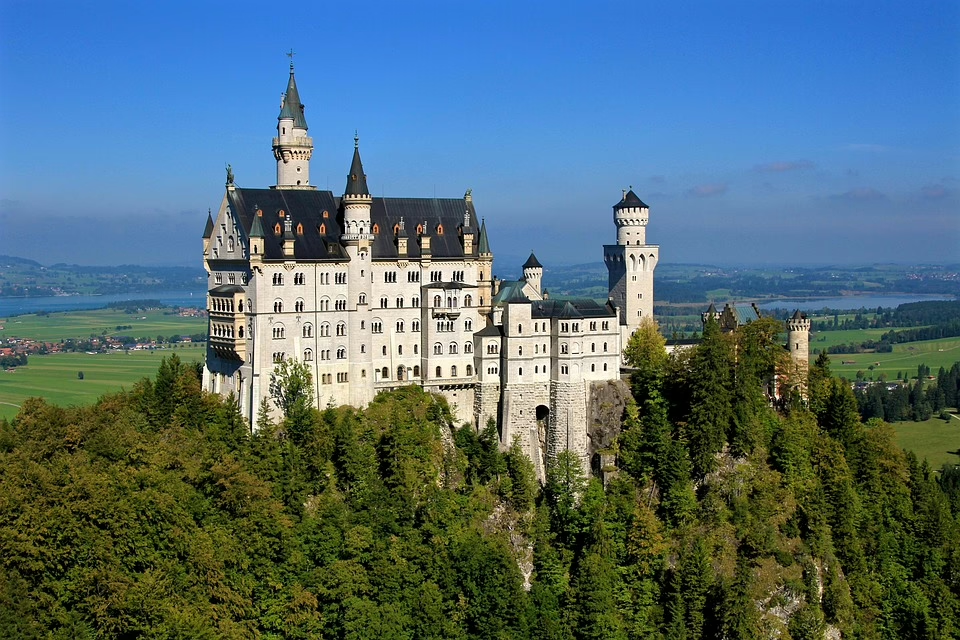Beyond Borders: The Shared History of Ethnicity and Culture in Kosovo and Albania
Introduction
The relationship between Kosovo and Albania is a tapestry woven from threads of shared culture, history, and ethnicity. Over centuries, the two regions have experienced a complex interplay of influences, struggles, and identities that have shaped their current realities. Understanding this shared history is vital for appreciating the present-day dynamics between the two territories and their people.
In this article, we will explore the historical context, cultural connections, and contemporary implications of the relationship between Kosovo and Albania. By examining these aspects, we aim to provide a nuanced understanding of how borders can divide yet also unite people sharing a common heritage.
Historical Context
The Early Years: A Shared Ethnic Identity
The roots of Kosovo and Albania’s shared history can be traced back to ancient times. The Illyrians, a group of tribes who inhabited the western Balkans, are considered ancestors of modern Albanians. Kosovo’s historical ties to Albania can be traced through the region’s demographic composition, comprising a significant Albanian-speaking population.
During the medieval period, Kosovo played a crucial role in the development of Albanian identity. The region was the site of significant battles and events that would later be romanticized in Albanian folklore. Kosovo’s capital, Pristina, was a cultural and political center where Albanian leaders advocated for national consciousness during the Ottoman Empire’s decline.
Ottoman Influence and National Awakening
The Ottoman Empire’s presence in the Balkans during the 14th to 20th centuries facilitated interactions between various ethnic and religious groups in Kosovo and Albania. Amidst the imposition of Ottoman rule, the Albanian nationalist movement began to form. Figures such as Skanderbeg became symbols of resistance and pride for both Kosovo and Albania.
The 19th century marked a period of national awakening and increased awareness of ethnic identity among Albanians in both regions. Activists and intellectuals sought to promote the Albanian language and culture, culminating in the establishment of the Albanian League of Prizren in 1878. This movement aimed to unify Albanians across the Balkans and assert their rights against Ottoman oppression.
The 20th Century: Turbulence and Conflict
The Balkan Wars and World War I
The Balkan Wars (1912-1913) were pivotal in reshaping the political landscape of southeastern Europe. The wars were fought primarily between Balkan states against the Ottoman Empire, leading to significant territorial changes. Kosovo was a focal point, with many locals supporting the liberation of ethnic Albanians from Ottoman rule.
The aftermath of these conflicts led to the establishment of the Kingdom of Serbs, Croats, and Slovenes, later known as Yugoslavia. The incorporation of Kosovo into this new state was marked by tensions, with Serbian nationalists asserting dominance and suppressing Albanian culture.
World War II and its Aftermath
World War II brought further upheaval to Kosovo and Albania. Italian and German occupations reshaped political alliances and ethnic identities. In Albania, nationalistic aspirations surged, while in Kosovo, tensions between ethnic Albanians and Serbs intensified as national allegiances became fluid.
Post-war Yugoslavia offered a precarious balance for Kosovo and its Albanian population. While some social and political freedoms were granted, underlying ethnic tensions remained unresolved, setting the stage for future conflicts.
The Kosovo War (1998-1999)
The Kosovo War was a watershed moment in the history of Kosovo-Albania relations. The culmination of years of ethnic tensions and oppressive policies against Albanians led to a violent conflict. Ethnic Albanians in Kosovo sought independence from Serbian rule, leading to widespread violence and humanitarian crises.
During the war, Albania provided refuge and support to many displaced Kosovars. The conflict drew international attention, culminating in NATO’s intervention in 1999. Following the war, Kosovo was placed under UN administration, and in 2008, it declared independence from Serbia, further solidifying its distinct identity while still linking closely with Albania.
Cultural Connections
Language and Literature
The Albanian language is a cornerstone of cultural identity for both Kosovo and Albania. The shared linguistic heritage facilitates a rich literary tradition that transcends borders. Prominent Albanian writers, poets, and thinkers have emerged from both regions, contributing to a collective sense of identity.
Folklore and oral traditions further reinforce cultural bonds. Stories, songs, and proverbs have been passed down through generations, encapsulating shared experiences and values. Festivals celebrating this folklore play a crucial role in preserving and promoting Albanian culture in both Kosovo and Albania.
Religion: A Complex Mosaic
Religion presents a multifaceted aspect of the Kosovo-Albania relationship. The majority of Albanians in both regions are Muslim, with a significant Christian minority. The intertwining of religious and ethnic identities often complicates perceptions of nationality.
In Kosovo, the legacy of Ottoman rule resulted in a predominantly Muslim population, while Albania is known for its religious tolerance and diversity. The coexistence of different faiths fosters a unique cultural richness, evidenced by various religious festivals and communal events celebrated by both Albanians and Kosovars.
Arts and Music
Traditional music and arts serve as potent expressions of shared identity. Albanian folk music, characterized by unique instruments and styles, is celebrated in both Kosovo and Albania. Events showcasing traditional music foster cross-border connections and reinforce a sense of belonging among the diaspora.
Contemporary art movements also reveal the intertwined identities of Kosovars and Albanians. Artists from both regions often collaborate, addressing shared themes of nationality, identity, and cultural heritage in their work.
Contemporary Dynamics
Political Relationships
The political landscape in the Balkans is ever-evolving, and the relationship between Kosovo and Albania plays a critical role. While Kosovo declared independence, Serbia continues to contest this decision, affecting the dynamics of diplomacy in the region.
Albania has consistently supported Kosovo’s sovereignty on international platforms, fostering a sense of unity and solidarity. Efforts for integration into European structures, including partnerships and initiatives, highlight the mutual interests of both countries.
Economic Collaboration
Economic cooperation has emerged as a significant aspect of the Kosovo-Albania relationship. Joint initiatives aim to enhance trade, infrastructure, and regional development. The recent establishment of economic zones seeks to bolster mutual growth, benefiting both economies.
Collaborative efforts extend to sectors such as tourism, agriculture, and technology, promoting a shared vision for progress. The potential for economic integration serves as a catalyst for a deeper connection between the two nations.
The Diaspora: A Bridge Across Borders
The Albanian diaspora is a vital factor in the relationship between Kosovo and Albania. People from both regions have migrated to various parts of the world, forming communities that maintain and promote their cultural identities.
Diaspora networks foster connections between Kosovo and Albania, facilitating the exchange of ideas, resources, and cultural practices. These interactions yield mutual benefits, as shared experiences across borders promote a sense of collective identity and solidarity.
Challenges Ahead
Nationalism and Ethnic Politics
While shared history and culture create a strong bond between Kosovo and Albania, the resurgence of nationalism and ethnic politics poses challenges. Political leaders may exploit ethnic sentiments for their benefit, potentially creating divisions.
Addressing these challenges requires a commitment to fostering inclusivity and cooperation. Building bridges between communities can counteract divisive narratives and promote a unified front.
The Path towards European Integration
Both Kosovo and Albania aspire for integration into the European Union, but their paths are fraught with obstacles. Historical grievances and unresolved issues may hinder progress, demanding careful navigation of diplomatic relations.
Fostering collaboration between Kosovo and Albania can enhance their chances of EU accession. A united front that prioritizes economic and political progress can demonstrate the value of partnership and shared goals.
Conclusion
The relationship between Kosovo and Albania is a reflection of shared history, ethnicity, and culture, characterized by resilience and cooperation. Despite the challenges posed by borders and political dynamics, the bonds between the two regions remain strong.
Understanding the complexities of their relationship is crucial for fostering peace, stability, and progress. Celebrating the shared heritage and working towards mutual goals can pave the way for a brighter future for both Kosovo and Albania, transcending borders and uniting people in their common struggle for identity and belonging.
References:
- Xhudo, L., & Dobruna, N. (2017). The Albanian Question: A Cultural Perspective. Tirana: Albanian Institute for Historical Studies.
- Khaçku, A. (2018). Cultural Ties Across Borders: The Case of Kosovo and Albania. Journal of Balkan Studies, 15(2), 45-67.
- Hyseni, R. (2019). Historical Narratives and Modern Nationalism in the Balkans. Pristina: Kosovo Academy of Sciences and Arts.
- Houghton, R. (2020). Ethnic Identity in the Balkans: The Role of Religion and Culture. London: Routledge.
- Gashi, H. (2021). The Impact of the Albanian Diaspora on Kosovo-Albania Relations. International Journal of Diaspora Studies, 8(1), 59-78.
This summarization presents an extensive exploration of the shared history of Kosovo and Albania, focusing on critical events, cultural intersections, and contemporary dynamics. If there are specific areas you’d like to delve deeper into or further expand upon, please let me know!
























Add Comment